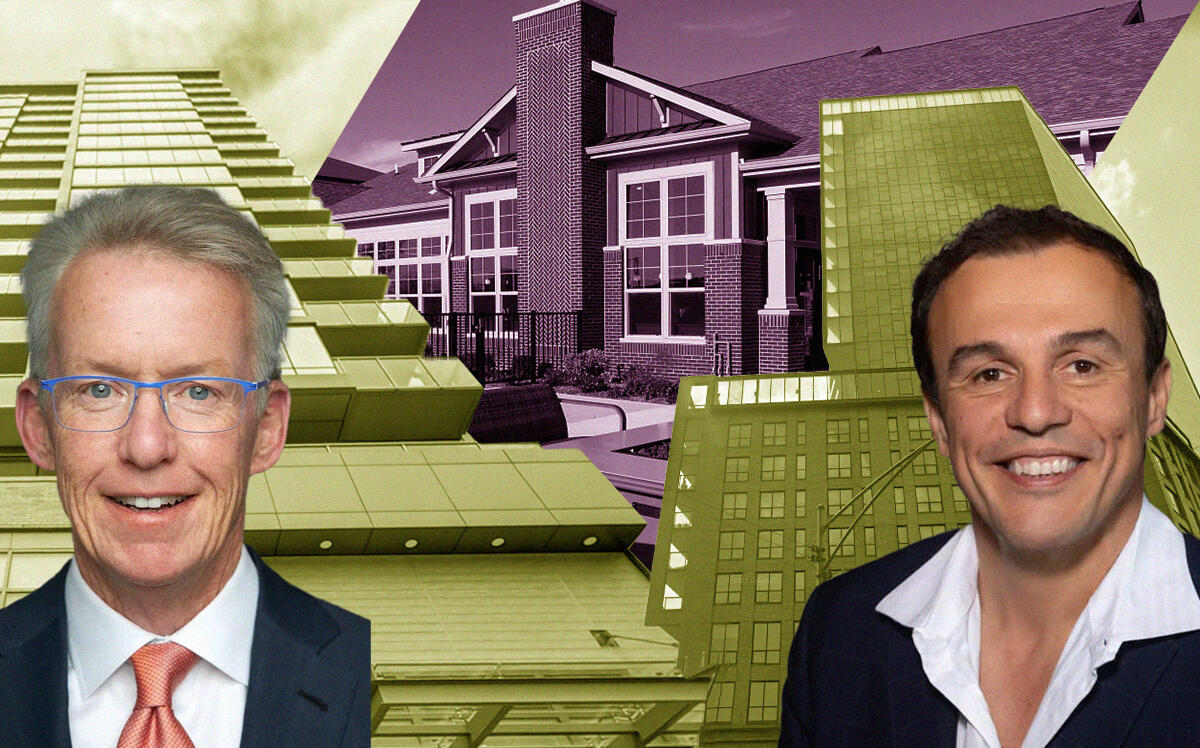 “King of the West Loop” sells $10.3M site
“King of the West Loop” sells $10.3M site
Trending
Chicago landlords lock in loans on new apartments to ride out rate hikes
Short-term loans sought as landlords mark their calendars to refinance in one to three years

Landlords of Chicago’s newly developed apartment complexes are hailing the last ride out of town as they court lenders and borrowing gets more expensive.
With interest rates expected to keep rising for at least the rest of the year and perhaps longer, developers that finished big multifamily projects in the last few years aren’t yet ready to sell at a time when rents have upward momentum. They’re still looking to get cash out of their properties by locking in new loans, though, especially for terms between one and five years.
That’s what CA Ventures and a partnership between UrbanStreet Group & Atlas Residential did with their area properties. CA Ventures owns the 18-story, 80-unit redevelopment of 450 West Belmont Avenue in Chicago, which just locked in a $35 million loan maturing in 2024 from LoanCore Capital, and the UrbanStreet and Atlas venture just snagged a three-year, $67 million loan on its 256-unit suburban complex The 450, built last year in Lombard, from Barings.
The owners and lenders on the properties didn’t respond to requests for comment.
“Investors are coming in for the three- four- and five-year term floating rate non-recourse loans, to carry property through this recessionary environment,” said CoreVest Finance’s Jimmy Rojas, whose business is focused on making bridge loans against multifamily properties. “They’re seeing if they can ride this (period of interest rate hikes) out with short-term financing.”
Long-term fixed-rate financing is still being achieved on new developments, including at 730 North Milwaukee Avenue in Chicago. That’s where Tandem Development just refinanced its construction debt on the 23-story, 196-unit mixed-use project with a new $56 million loan arranged by Draper and Kramer through a federal Housing and Urban Development program called 223(f), with a 35-year term and amortization.
“Many people think of the 223(f) program as being reserved for nonprofits or affordable housing, but it can actually provide some of the most competitive fixed-rate financing available for market-rate properties,” Draper and Kramer’s Matt Wurtzebach said in a statement.
With interest rates rising, there is a more limited market for long-term fixed-rate financing with government backing than just a few months ago, Rojas said. “Those are only for a specific type of institutional borrower,” he said.
While rising costs to borrow will temper elective refinancing, debtors facing maturities in the next 18 months are probing capital markets now, particularly if they’ve gotten close to stabilizing their operating income after opening their buildings, Walker and Dunlop’s Dean Huber said. They’re betting inflation is tamed and interest rates are falling again in two years, and that they can find cheaper capital then.
Borrowers are signing on for floating rate loans, yet carving out short-term protections in their terms that come with long-term risks. Popular terms include 18 months of interest-only payments and low ranges that interest and cap rates on the deals must initially stay in before floating too high, so borrowers have a chance to refinance in one to three years in a more friendly market, Rojas said.
“Now is a great time,” Huber said. “I have a lot of sponsors considering, even with prepayment penalties, refinancing now.”
Read more
 “King of the West Loop” sells $10.3M site
“King of the West Loop” sells $10.3M site
 New York firm buys 20% stake in Chicago landlord Waterton
New York firm buys 20% stake in Chicago landlord Waterton




